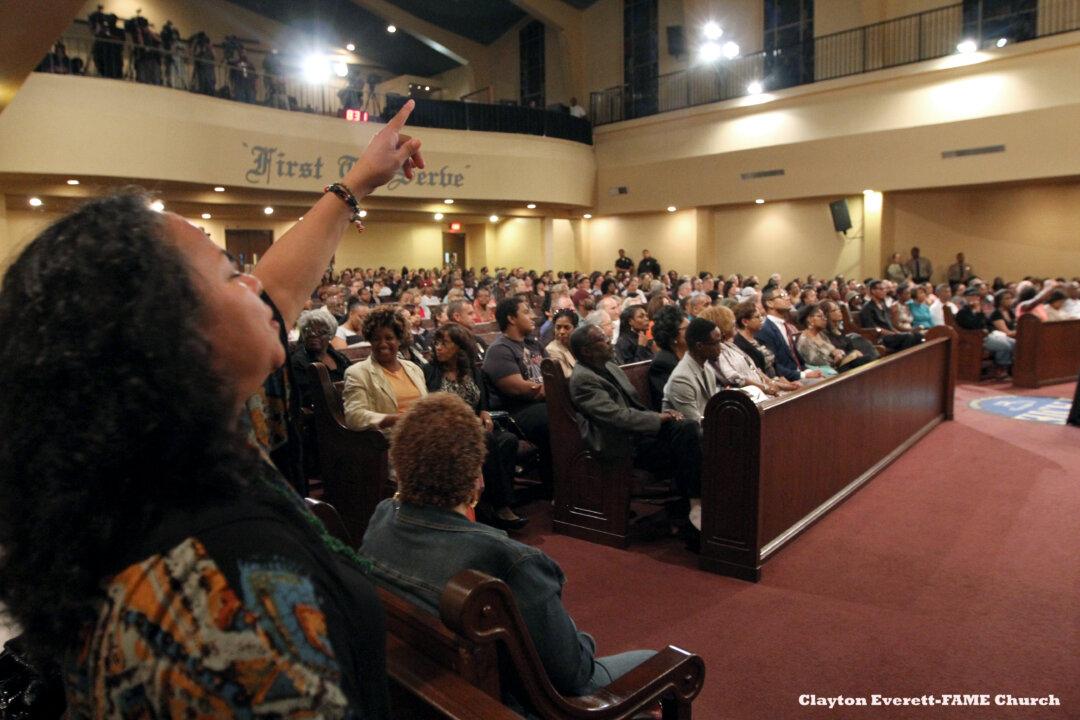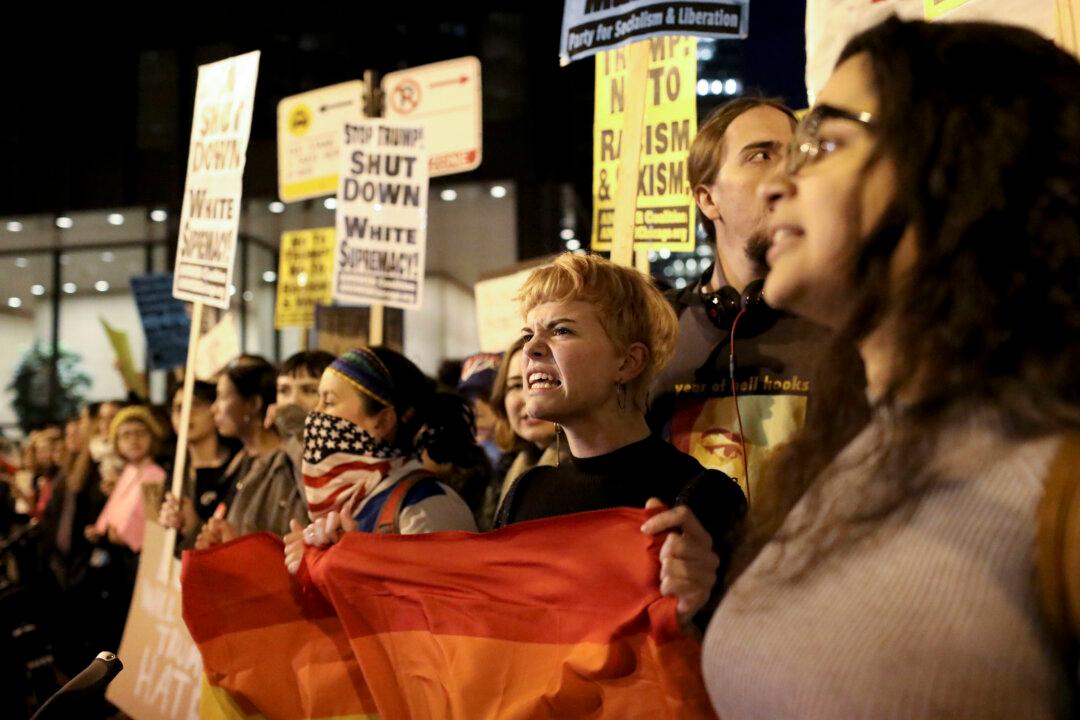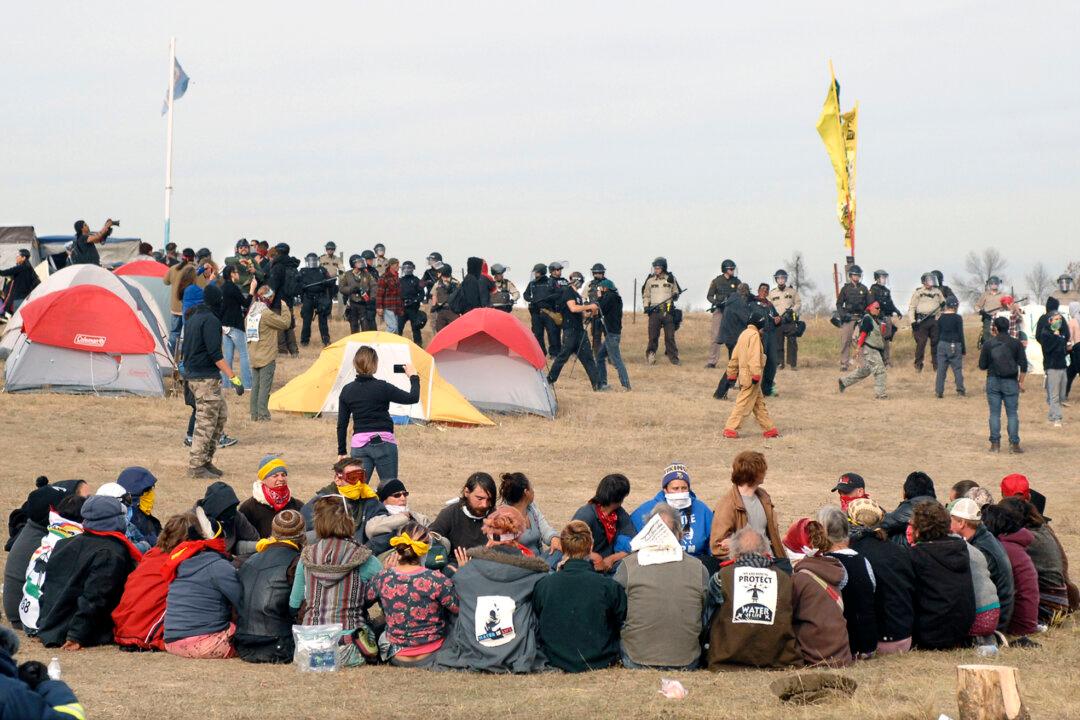Memories of a memorial service, the celebration of nine lives that live on, in an evening of inspiration and devotional joy. An evening of joyous voices that overpower the grief of violence with the call and response of spiritual self-empowerment.
On Thursday evening, June 18, at the First AME Church in Los Angeles, a memorial service was held for:
Clementa Pinckney, 41, Senior Pastor at Emanuel AME Church in Charleston, South Carolina
Sharonda Coleman Singleton, 45, Assistant Pastor
Tywanza Sanders, 26
Ethel Lance, 70
Susie Jackson, 87
Myra Thompson, 59
Daniel Simmons Sr., 74
DePayne Middleton Doctor, 49
Cynthia Hurd, 54
That evening had and will have a life and a time of its own. For those who were there, it was more then a news story. It was a story that needed to be told, about the pain of tragedy and the joy of faith. About nine people who had their lives violently taken from them, in a Church in Charleston, South Carolina.
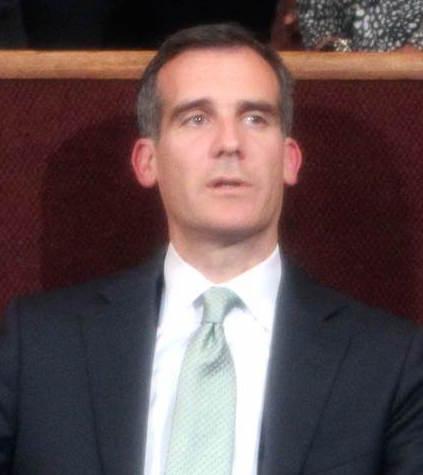
“We are all devastated by the tragedy in Charleston, and we mourn the loss of innocent lives. I am offering our assistance to Charleston and its communities during this painful time. We will do all we can to help. Today marks another day that we must collectively work towards building community throughout our cities. We must come together, find strength in numbers, and work toward a future in which peace and unity conquer fear and hatred,” Los Angeles Mayor Eric Garcetti told the Epoch Times. (Clayton Everett)

“The overwhelming national response to the senseless tragedy at Mother Emanuel AME Church in Charleston has lifted the community. We are grateful for your support as we struggle to deal with this event. Your message and your gifts help comfort our grieving community,” said Joseph P. Riley, Jr., mayor of Charleston, S.C., in a statement to the Epoch Times. (AP Photo/David Goldman)
They lost their lives, they lost their right to create future memories, to evolve, to see their families grow old, to see their children grow up. Yet that night they lived, they lived in the feelings and reminiscences, of their religious community’s collective remembrances made real. We are who we are when we are alone. We are what we are when we are a choir.
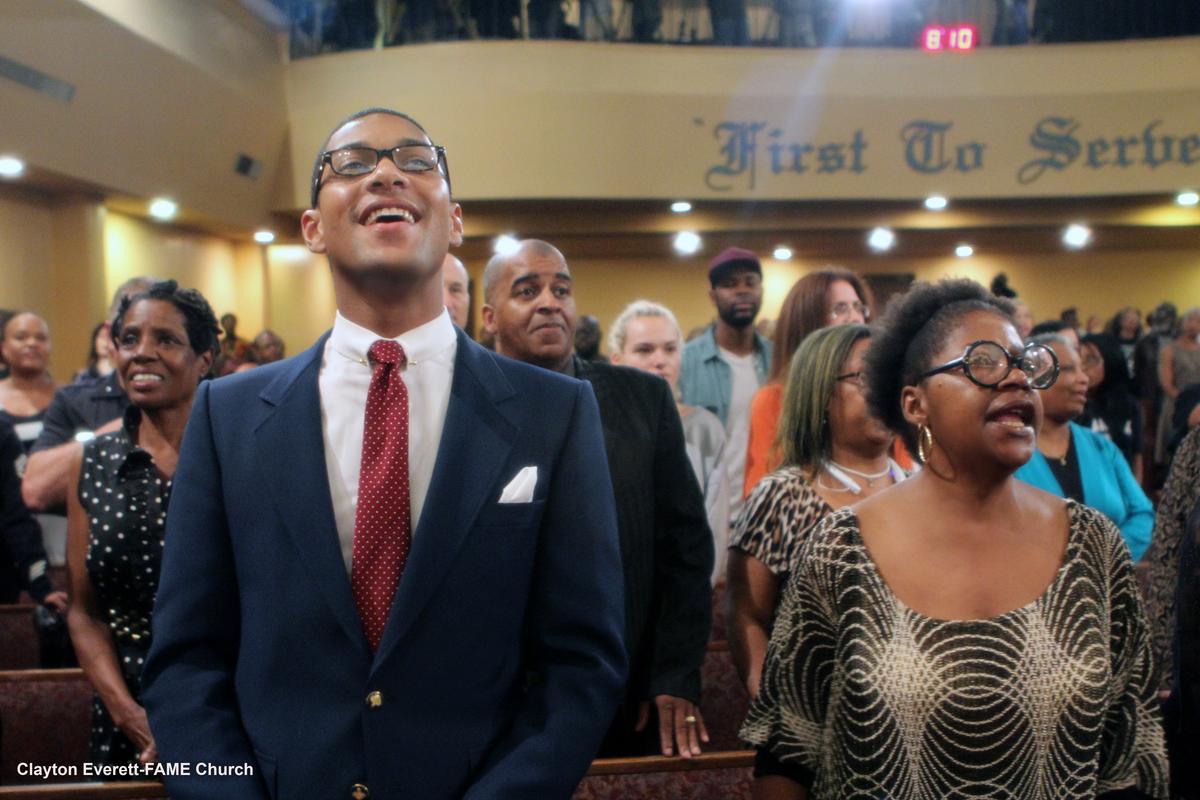
Churchgoers sing during the ceremony remembering those killed at Charleston, S.C. (Clayton Everett)
The Church and the choir are guided by Pastor and Senior Minister J. Edgar Boyd, who has a long history of leadership in civic and religious communities throughout the state of California. Pastor Boyd has organized and established housing and community development projects in San Francisco and is a consultant with corporations statewide.
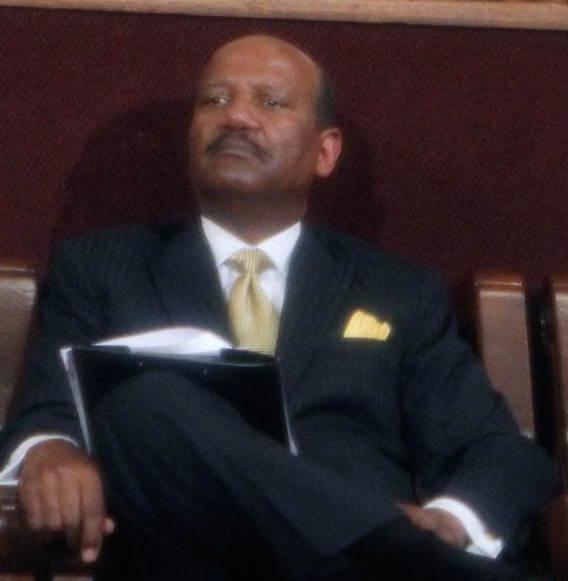
Reverend J. Edgar Boyd, of the First AME Church in Los Angeles. (Clayton Everett)
It is his pulpit, and from it on that night he spoke,
“This is not a crime against a church, it is not crime against a race. This is a crime against a nation.”
Pastor Boyd then introduced the choir and the music, the music of the African American Church that is the creative sound of the shackle broken and the soul’s song of righteous freedom.
The traditional call and response that is the soulful and dynamic pattern of spontaneous democratic participation—that was practiced in bondage, yet freed American music—is more than a religious hymnbook. It is and always will be America’s most fundamental music. It was studied by Gershwin, Ravel, and Paul Whiteman. From these roots, Louis Armstrong changed American music by creating the jazz solo, and Scott Joplin created ragtime operas. It is the true blues, it’s rhythm and blues, it’s jazz, it is the true sound of gospel, and it was created and composed within the pain and the joy of African American church pews.
And now, once again, yet again, its people, its community raises to its feet in the names of Clementa Pinckney, Sharonda Coleman Singleton, Tywanza Sanders, Ethel Lance, Susie Jackson, Myra Thompson, Daniel Simmons Sr., DePayne Middleton Doctor, and Cynthia Hurd.
The community will, as always, use its pastors, its pulpits, its powerful piety to sing out for and in the name of those nine whose voices were forever silenced as they studied the gospel on sacred ground. The entire congregation rose to voice its grief, dignity, and spiritual strength to the heavens above.
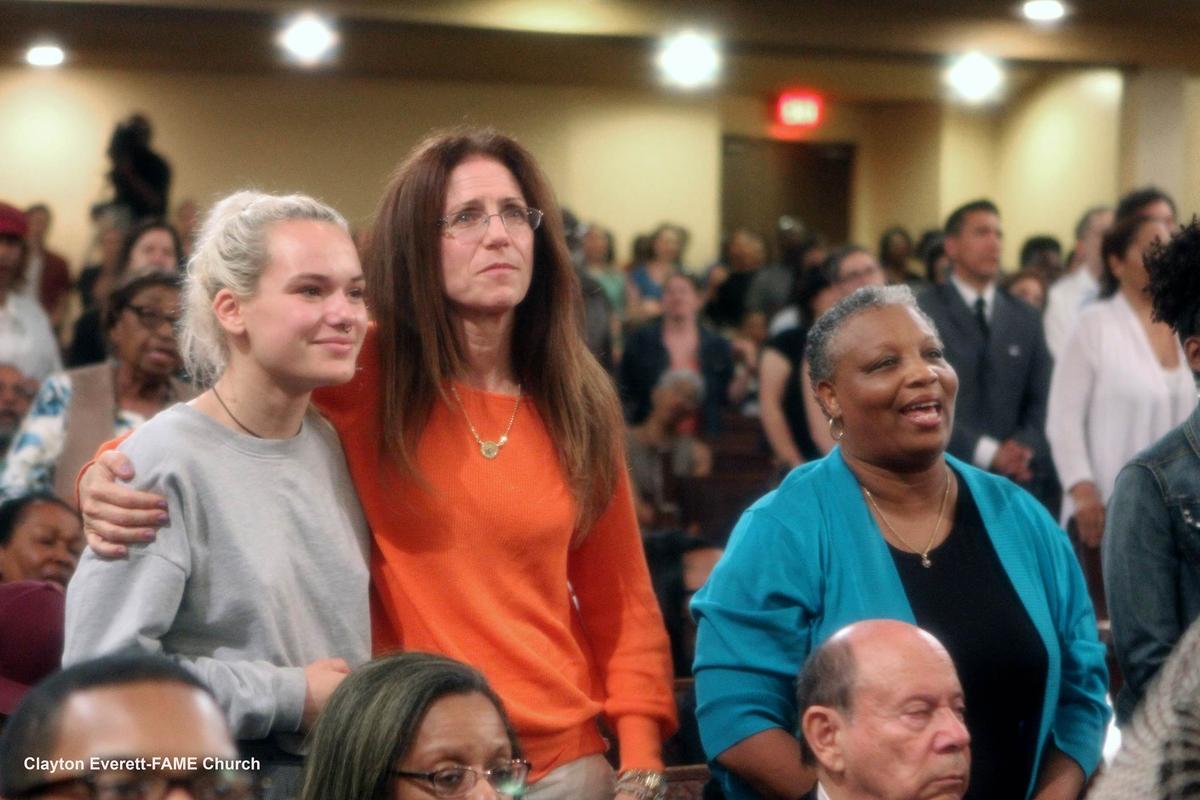
A mother and daughter attend the remembrance, June 18. (Clayton Everett)
It will bring you to your feet. Now the question is: Will you take a stand? Will you rise to honor your inspiration by activating your ideals? Will you create the ability for all people to secure their rights to the common human nobility?
“Perhaps they are not the stars,
But rather openings in heaven where
The love of our lost ones pours through
And shines down upon us to let us know they are happy.”
—Native american legend
“Say not in grief: ‘He is no more,’
but live in thankfulness that he was.”
—Hebrew Proverb
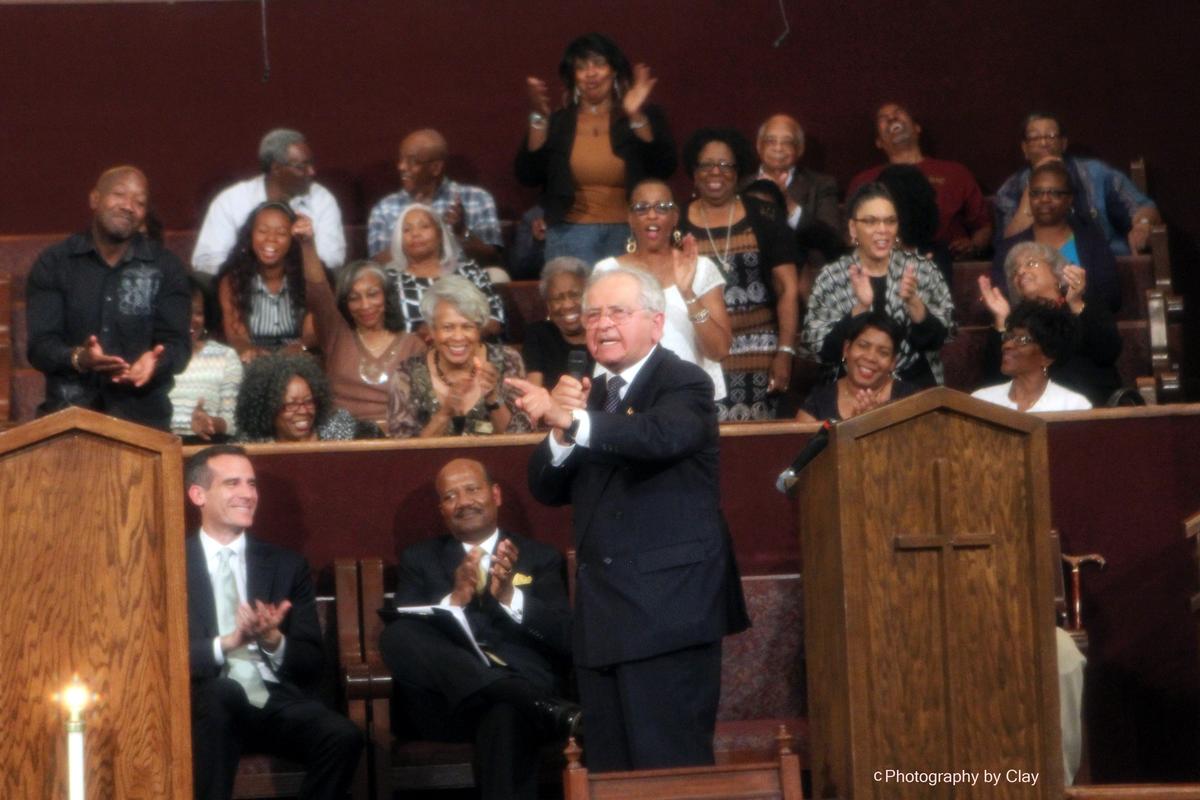
Scientist and social activist Dr. Simon Simonian spoke at the ceremony. (Clayton Everett)
Award winning scientist, doctor, and international social activist Dr. Simon Simonian, also made a statement about the events in Charleston.
“My consolation for the pain and grief that brings you here tonight, and how important it is that you are here tonight. That each of you left different homes in different cars. Some of you may have carpooled, but you took your cars. You are different in your beliefs. Some of us are Christians or Muslims or Jews, we came here in different cars from different houses on different roads with different beliefs, but once we are here, we are part of the same honorable purpose: to mourn, not in silence, regarding this unacceptable tragedy.
“But to be here tonight to commit ourselves to love, the love that is about caring for each other, the love that is a stand against all violence. As a scientist, a Quaker, and a doctor, we ask questions. Please consider this question. You all had to qualify and pass a test to get a drivers license, so you could drive your car here tonight. How can we work together, lovingly, to see that it is at least as hard to get a gun license as it is to get a driver’s license?
“Let use protect ourselves by building a better society. Let us protect ourselves by strengthening in ourselves and in others, the empowerment our spiritual respect and love of life, that is within us and in others. Thank you.”
A special thanks to First AME Church’s photographer, Clayton Everett, for all of the photos.
Shelley B. Blank has worked with major national and international newspapers as a journalist as well as a corporate executive. He has produced programs for Public Radio and lectured on modern multimedia communications and technology.
